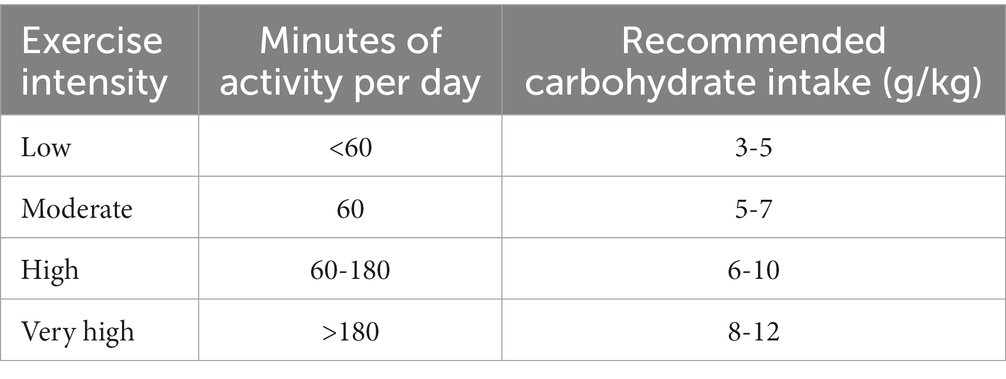The Main Principles Of Sports Nutrition
Table of ContentsMore About Sports NutritionThe smart Trick of Sports Nutrition That Nobody is Talking AboutAll about Sports NutritionThe Sports Nutrition PDFs
Hydration condition is a crucial location of sporting activities nourishment that can make a distinction in efficiency. When involving in sustained high intensity exercise, you need to renew fluids and electrolytes to avoid moderate to potentially severe dehydration.Every pound (0.45 kg) lost equals 16 oz (0.5 L) of liquid loss. You should eat the equal quantity of liquid to rehydrate before the next training session. It's also essential to renew electrolytes during and after extended extreme workout to prevent dehydration. Since numerous sports drinks do not have ample electrolytes, some individuals select to make their own. Furthermore, lots of business make electrolyte tablets that can be integrated with water - Sports Nutrition to supply the needed electrolytes to keep you hydrated.
That said, thinking about that professional athletes usually have greater nutritional requirements than the general population, supplementation can be utilized to fill up in any kind of voids in the diet regimen. Some individuals pick to include healthy protein powder to their oats to boost their protein content a little bit. Carbohydrate supplements might aid sustain your power levels, particularly if you engage in endurance sports lasting longer than 1 hour.
Numerous long-distance endurance athletes will certainly aim to consume 1 carbohydrate power gel including 25 g of carbs every 3045 mins during an exercise session longer than 1 hour. Sports beverages likewise typically include adequate carbohydrates to preserve power degrees, but some professional athletes like gels to avoid too much liquid intake throughout training or events, as this might result in digestion distress.
What Does Sports Nutrition Do?
In your body, beta-alanine offers as a building block for carnosine, a compound accountable for aiding to reduce the acidic environment within working muscular tissues throughout high intensity exercise. This might assist athletes such as brief- to medium-distance joggers and swimmers.
Here are three of the top sports nutrition misconceptions and what the realities actually say. While protein intake is an essential aspect in obtaining muscular tissue, simply supplementing with protein will not cause any significant muscle mass gains. To promote significant modifications in muscle mass dimension, you require to regularly perform resistance training for an extended time period while making certain your diet is on factor.
Another usual misconception in sporting activities nourishment is that eating close to bedtime straight from the source will certainly create added fat gain. This is based upon the presumption that since you're relaxing, your body is burning less calories, so any kind of food you consume will certainly be kept as fat. While it holds true that your body burns fewer calories at remainder, this does not imply the food will automatically be stored as fat.
Sporting activity nourishment is the branch of and concentrated on people that exercise intense or endurance sports. Depending on the last goals of the sport and the training, will stress different foods and diets. is necessary due to the fact that the nutritional needs of a professional athlete are various from those needed by a normal individual.
What Does Sports Nutrition Do?

is among the variables that influence exactly how well her comment is here a professional athlete carries out, along with their genetic makeup and the training they do. The foods consisted of in offer three fundamental purposes: Providing energy Supplying issue for strengthening and repairing cells Keeping and regulating the metabolic process There is no solitary for professional athletes; the depends on the particular demands of each sporting activity and the type of body of the athlete.
Mix it up Eat a different and healthy diet regimen that provides the right amount of energy and necessary nutrients. Gas right Pick a variety of food, including foods which contain carbs, based upon the quantity of workout you are doing and differ your consumption as necessary. Make every effort for 5 Consume at least five portions of fruit additional hints and vegetables a day; fresh, frozen, dried and canned all count.
Protein should ideally be evenly distributed every three to four hours throughout the day. Studies reveal that the enhancement of 15-25g of healthy protein to a post-workout dish or treat can improve glycogen storage space, minimize muscle mass discomfort and promote muscle mass repair work. This can be at any time in the 24 hr after your workout, although you may see reduced results the longer you leave it.
Sports Nutrition Fundamentals Explained

Professional athletes interested in using a supplement needs to seek advice from an accredited sporting activities dietitian to guarantee they use the supplements securely and properly. Educating volume and strength can differ from day-to-day and week-to-week, along with your competitors schedule.

Comments on “Sports Nutrition Fundamentals Explained”